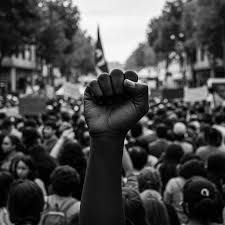SUMMER OF SOUL: FILM REVIEW
- Bernard Zuel
- Sep 2, 2021
- 4 min read

SUMMER OF SOUL (… OR, WHEN THE REVOLUTION COULD NOT BE TELEVISED)
There are two almost inexplicable things about this often thrilling and sometimes quite moving documentary, which captures a six week run of Sunday festivals in Harlem during the summer of 1969, that tell you so much about America then and America now.
The first is why did this footage sit around for four decades, unsynced, unwatched and unwanted, until musician and budding cultural historian Ahmir “Questlove” Thompson took it upon himself to create this film? The second is how did these shows attract so many good, very good and great performers for a lineup that I would argue outstrips the more fabled Woodstock, held that same summer 160 km north of the city, for quality, variety and significance?
The answer to both is in two words: Black culture.
The Harlem Cultural Festival, held in what was then known as Mount Morris Park (now Marcus Garvey Park, named after the activist, journalist and entrepreneur) was a celebration of the many genres and forms that not only are the foundation of pretty much every strand of American music (blues, jazz, rock, soul, gospel, pop, funk), but would create and lead the movements of the next few decades (hip hop, disco, consciousness-raising).
It was also a statement of both pride and fact that Black culture was not just a survivor of centuries of repression and punishment, a year after the assassination of Martin Luther King and the election of a right-wing administration of extreme antipathy to them, but thriving independently of White approval and support.
Including, it’s worth noting, festival security being provided by the Black Panthers, despite – and maybe because of – the presence of New York City police.

Do all of those factors go some way to explaining why the man who filmed the six shows, Hal Tulchin, and the festival director, ebullient former lounge singer, Tony Lawrence, couldn’t get film distributors and major companies interested, consigning the film to storage sheds? Too much “blackness” for companies that after all were white run, even after the Woodstock film became a hit? Too scary the prospect of confidence and pride paraded before audiences still adjusting to a post-Civil Rights Act country?
We’ll never know, but one thing that isn’t in any doubt, is that the performances more than justified a film then, and reward us now, especially in the broader context that Questlove places the concerts.
From the opening shots of a still young Stevie Wonder, not long before he broke the Motown shackles and made his decade-defining run of ‘70s albums, performing in the rain (followed around the stage by an attendant holding an umbrella over him) we are close and enthralled.
“The energy was indescribable, more than exciting,” recalls a woman who as a teenager then had snuck out, lying to her mother, to attend.
And you can feel that, whether in the buoyant performances of the Edward Hawkins Singers “taking the gospel to them” and BB King refreshing the blues, South African Hugh Masakela, Puerto Rican Ray Barretto and Cuban Mongo Santamaria bridging the African diaspora, or Sly & The Family Stone breaking the mould in costumes and mixed male/female, white/black, but no less evangelical for their message of “different strokes for different folks … I’m every day people.”

But you can feel it also in the freedom and sense of ease in the audience, where, as another concertgoer remembers, wherever he looked in the biggest crowd he had ever been in, he saw people who looked like him, felt like him … were him.
Interestingly though, that celebration of Blackness was both a thrill: Mavis Staples, one of the standout performers, either with the family Staples Singers, or in a stunning performance with Mahalia Jackson of Martin Luther King’s favourite hymn Lord Take My Hand, admitting she was overcome seeing so many Black people in front of her enjoying themselves. And potentially a barbed circumstance for some of the acts: Marilyn McCoo remembering that her chart-topping band, The Fifth Dimension, had felt some trepidation ahead of their said because they had for some time felt themselves “caught in the middle” of White and Black music, their songs sometimes criticised for not being Black enough.
This was no gathering of homogenous thought and attitudes, or one moment. To that end, alongside the music and speeches from the stage, Questlove intercuts contemporary reports on the growing heroin subculture, the reclamation of Harlem as the focus of Black culture with the assistance of liberal Republican Mayor, John Lindsay, the intensifying debate between violent action and continuing non-violent protest, and even the moon landing (its history-making nature undercut by the general sense that here was money being spent to fly to the moon rather than raise Black Americans out of poverty). The culture beyond song fleshes out the story, builds that sense of consciousness.
However, it’s probably fair to say that even with the broader story and the endless parade of joyous, powerful, funky performances, the greatest elevation of Black consciousness and musical force comes in the one package of Nina Simone in mood and on form, singing and reciting a powerfully provocative poem.
“Her fearlessness and her control as a woman, as a Black woman, was just awesome,” says an admirer. He’s right.
Summer Of Soul (… Or When The Revolution Could Not Be Televised) opens nationally today wherever cinemas are open, and will screen on Disney+ from September 29.








Comments